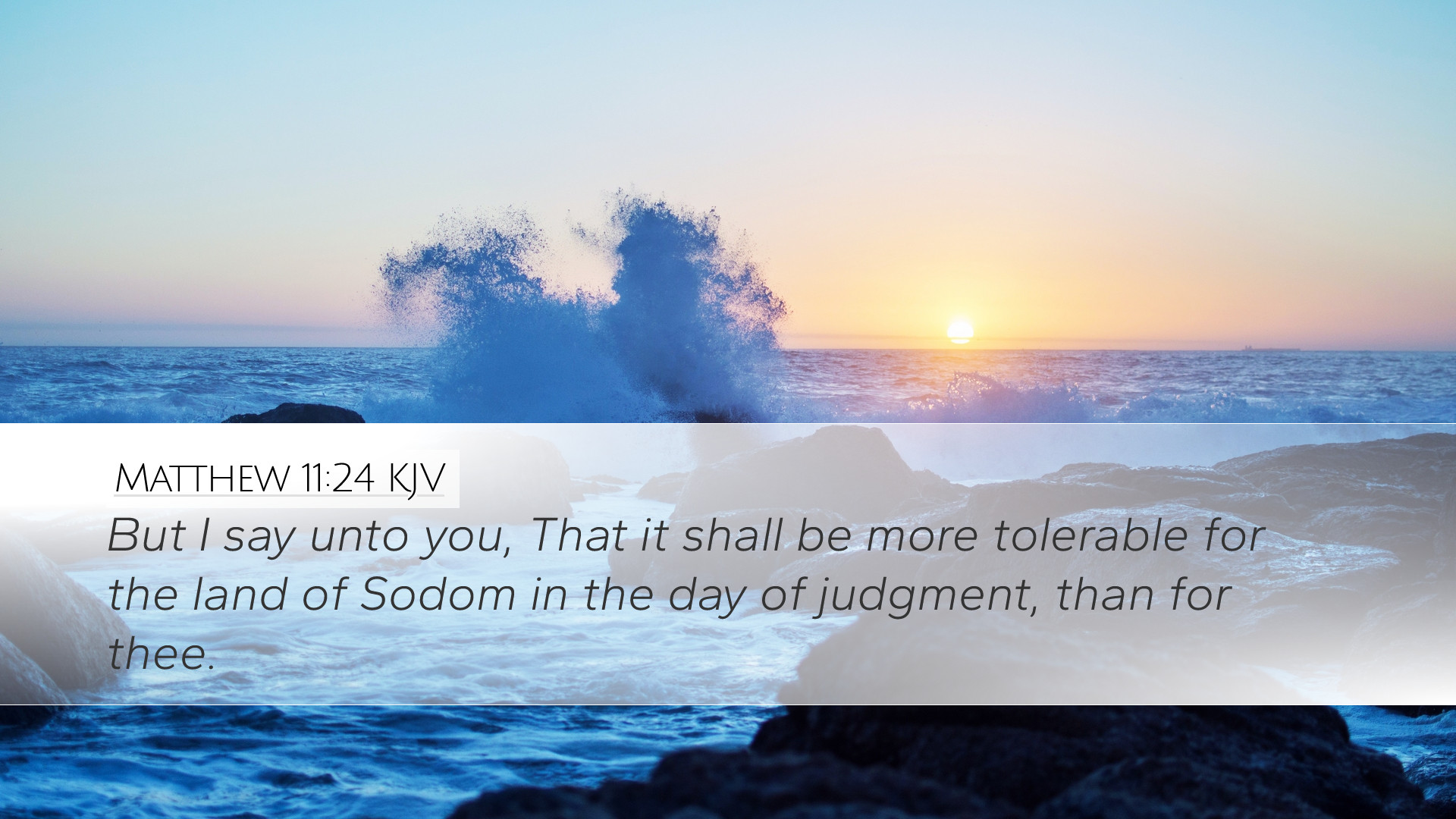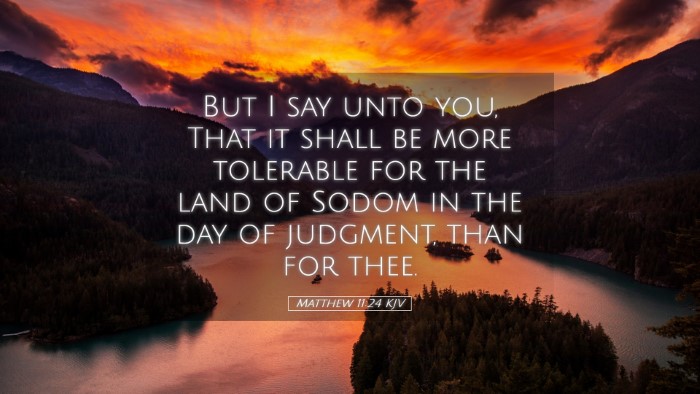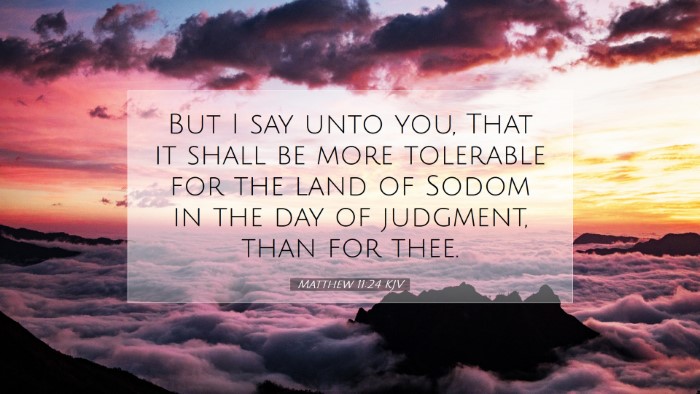Commentary on Matthew 11:24
Verse Context: Matthew 11:24 states, "But I tell you that it will be more bearable for the land of Sodom on the day of judgment than for you."
Introduction
This verse comes from a critical discourse in which Jesus expresses distress over the cities in which He performed many miracles but still faced unbelief. The gravity of His words highlights a profound theological insight into judgment, accountability, and the severity of rejecting divine revelation.
The Greater Judgment Pronounced
Matthew Henry's Commentary: Henry emphasizes the importance of revelation and the seriousness of neglecting it. He states that those who had the privilege of witnessing Christ's miracles and yet remained unrepentant would face a harsher judgment than Sodom, known for its extreme wickedness. This serves to illustrate the principle that greater opportunities for faith lead to greater accountability.
Albert Barnes' Analysis: Barnes affirms that the inhabitants of Chorazin and Bethsaida, by their proximity to Christ’s ministry, had a greater manifestation of divine truth than the people of Sodom. The warning indicates that embracing the truth and then rejecting it results in severe consequences. Barnes explains that this is indicative of God's just nature—those who know more are held to a higher standard.
Adam Clarke's Observations: Clarke elaborates on the historical and spiritual dimensions of Sodom and compares them to the cities mentioned by Jesus. He notes that Sodom's sin, though grievous, was less culpable in light of the greater light the cities of Capernaum, Chorazin, and Bethsaida had received. Clarke’s commentary highlights the severity of spiritual blindness and the consequences of willful ignorance.
The Nature of Judgment
Understanding judgment in biblical terms requires acknowledging God's justice and mercy. Jesus' proclamation sets a standard for divine judgment, considering not only the actions but also the context and understanding of those actions.
- Justice of God: Judgment is depicted as both fair and aligned with God's nature. Henry remarks that it is a mercy that judgment is meted out according to understanding and opportunity.
- Severity of Rejection: Rejection after receiving knowledge of Christ is portrayed as a grave sin. The cities addressed had seen miracles, yet chose to reject Him, thus incurring a more serious fate.
Implications for Believers
The implications of Matthew 11:24 are far-reaching for contemporary believers. It invites self-reflection regarding how one responds to the truths of the Gospel and the revelation of Christ.
- Accountability: There is a call for believers to be conscious of their witness and their understanding of God's word, as their response will shape their spiritual journey.
- Call to Evangelize: The harsh realities of judgment serve as a motivation for evangelism. If Christ warns of severe consequences for unrepentant hearts, believers are compelled to share the Gospel fervently.
Conclusion
In summary, Matthew 11:24 serves as a poignant reminder of the gravity of rejecting Christ's revelation. The commentaries by Henry, Barnes, and Clarke coalesce to form a robust theological understanding that emphasizes accountability, the nature of divine judgment, and the urgent call for repentance and faith in light of God's mercy. For pastors, students, and theologians, this verse challenges each to consider their response to Christ and the implications therein for their ministry and personal faith journeys.


